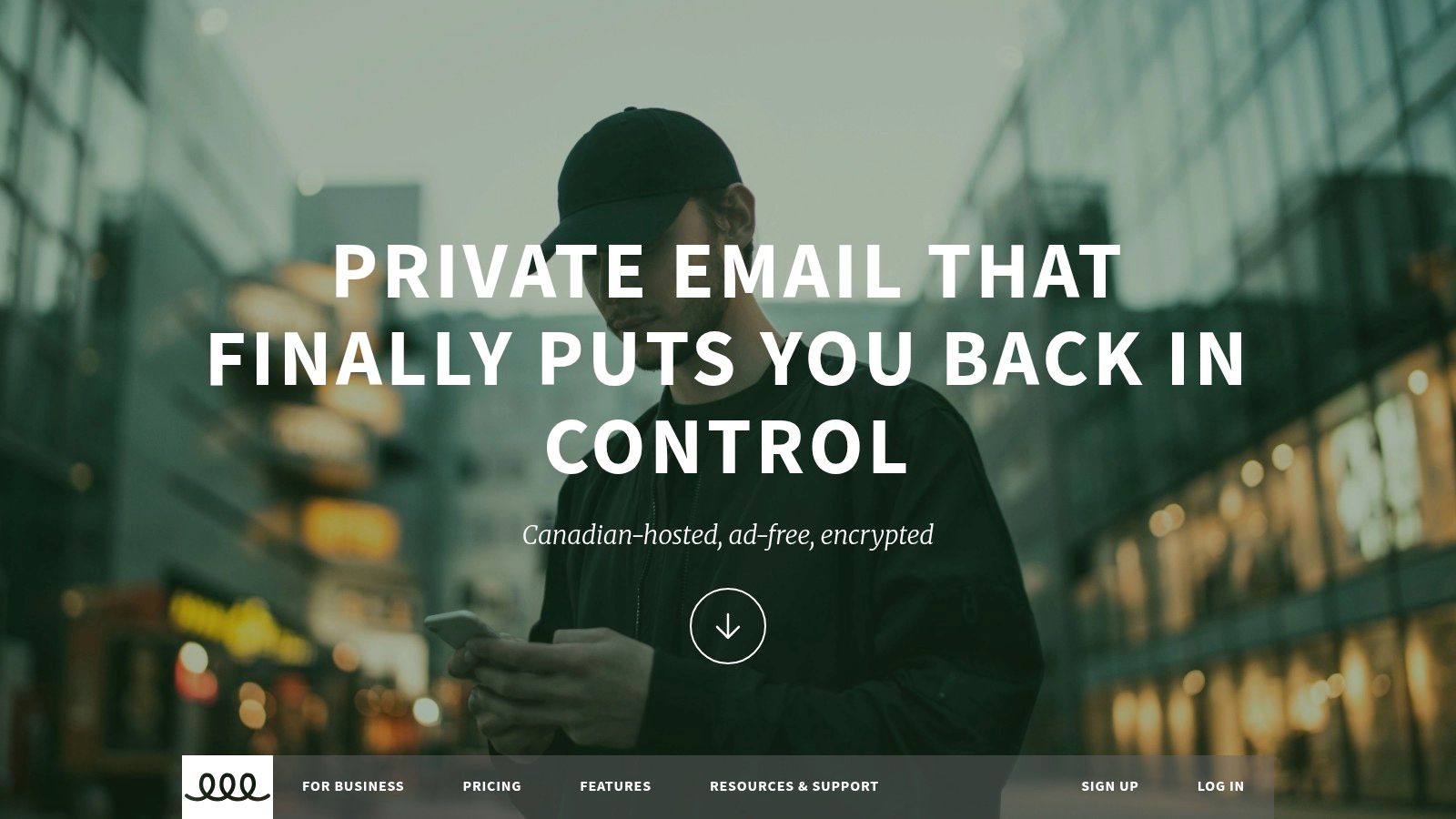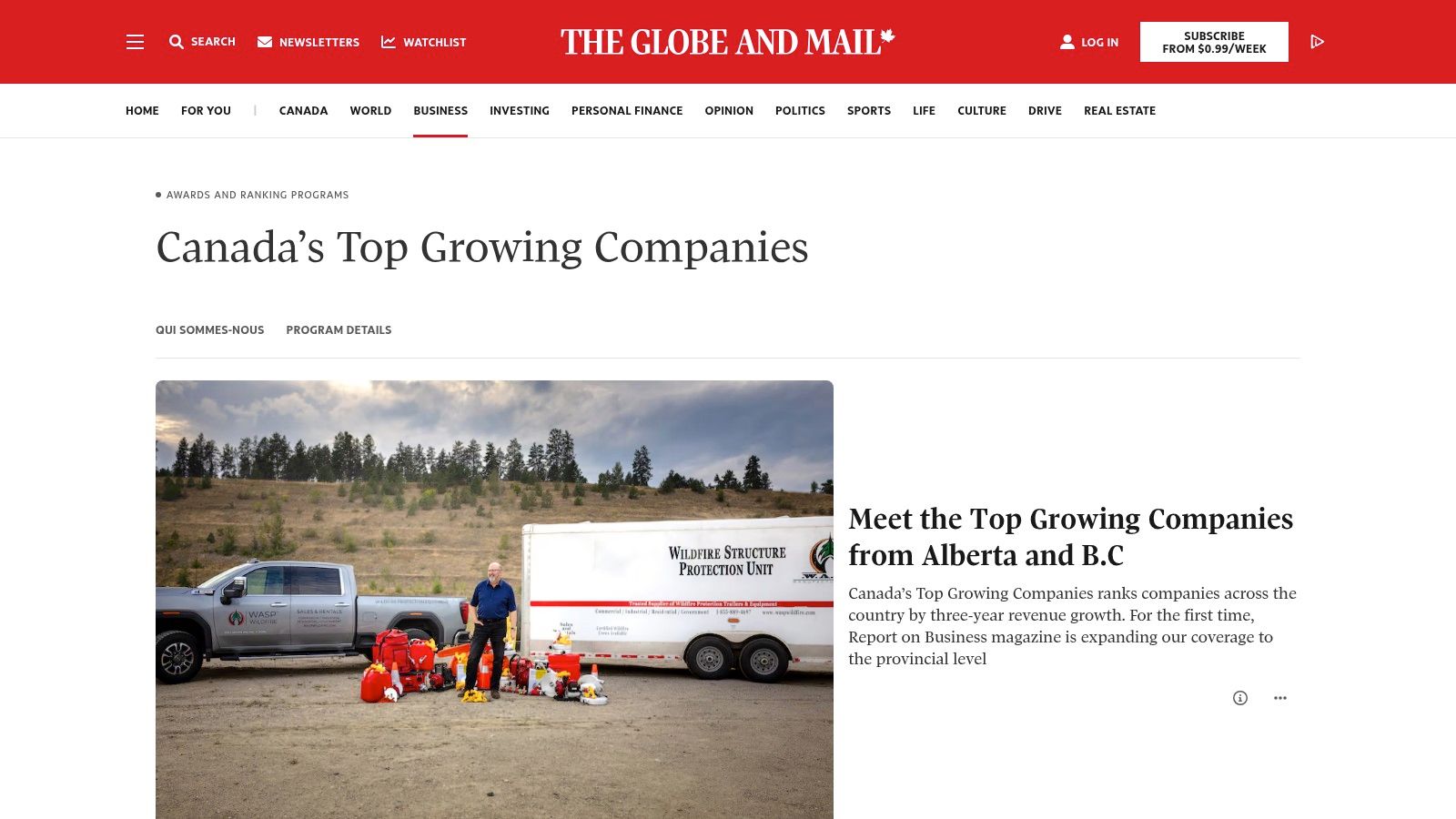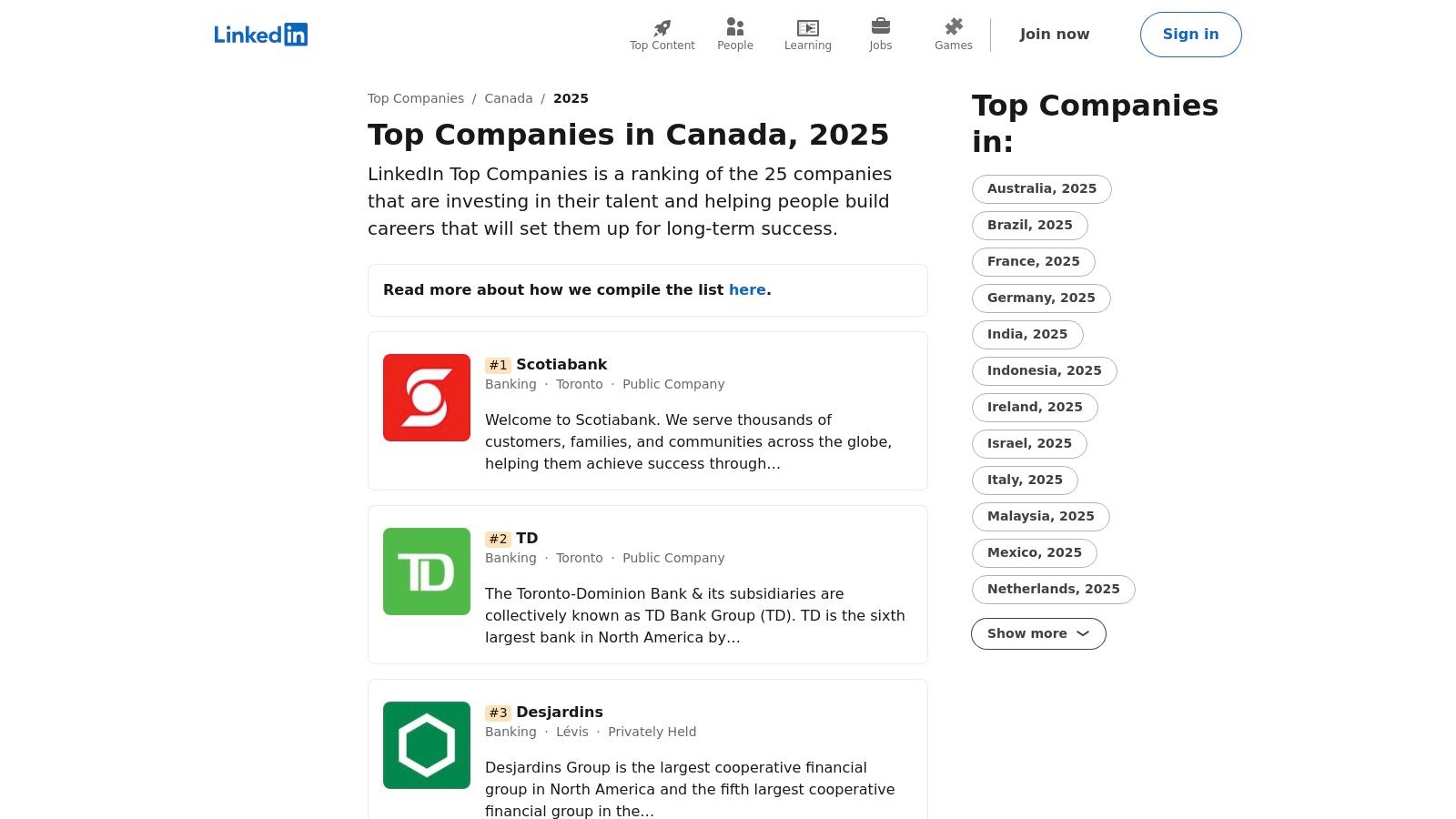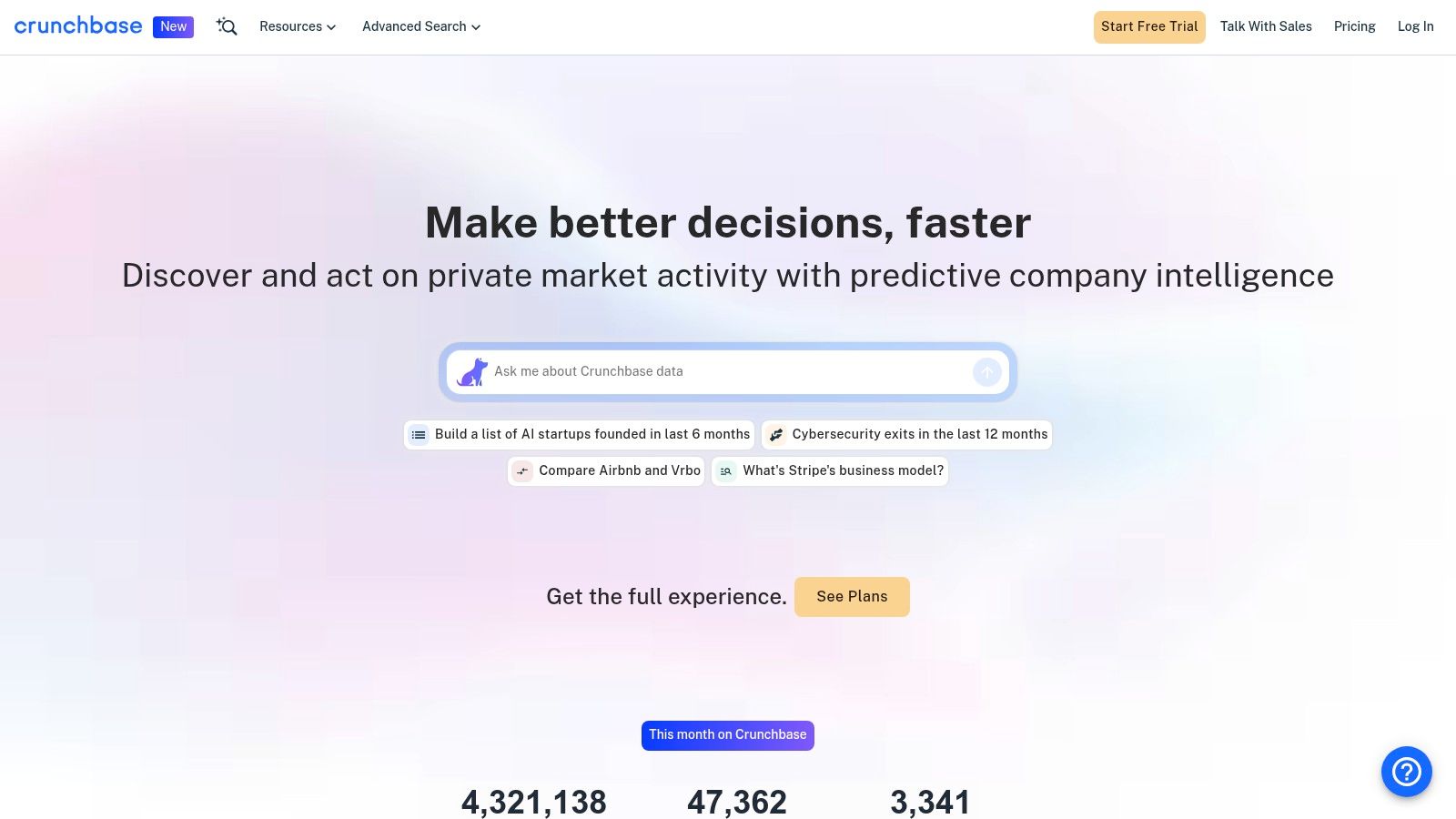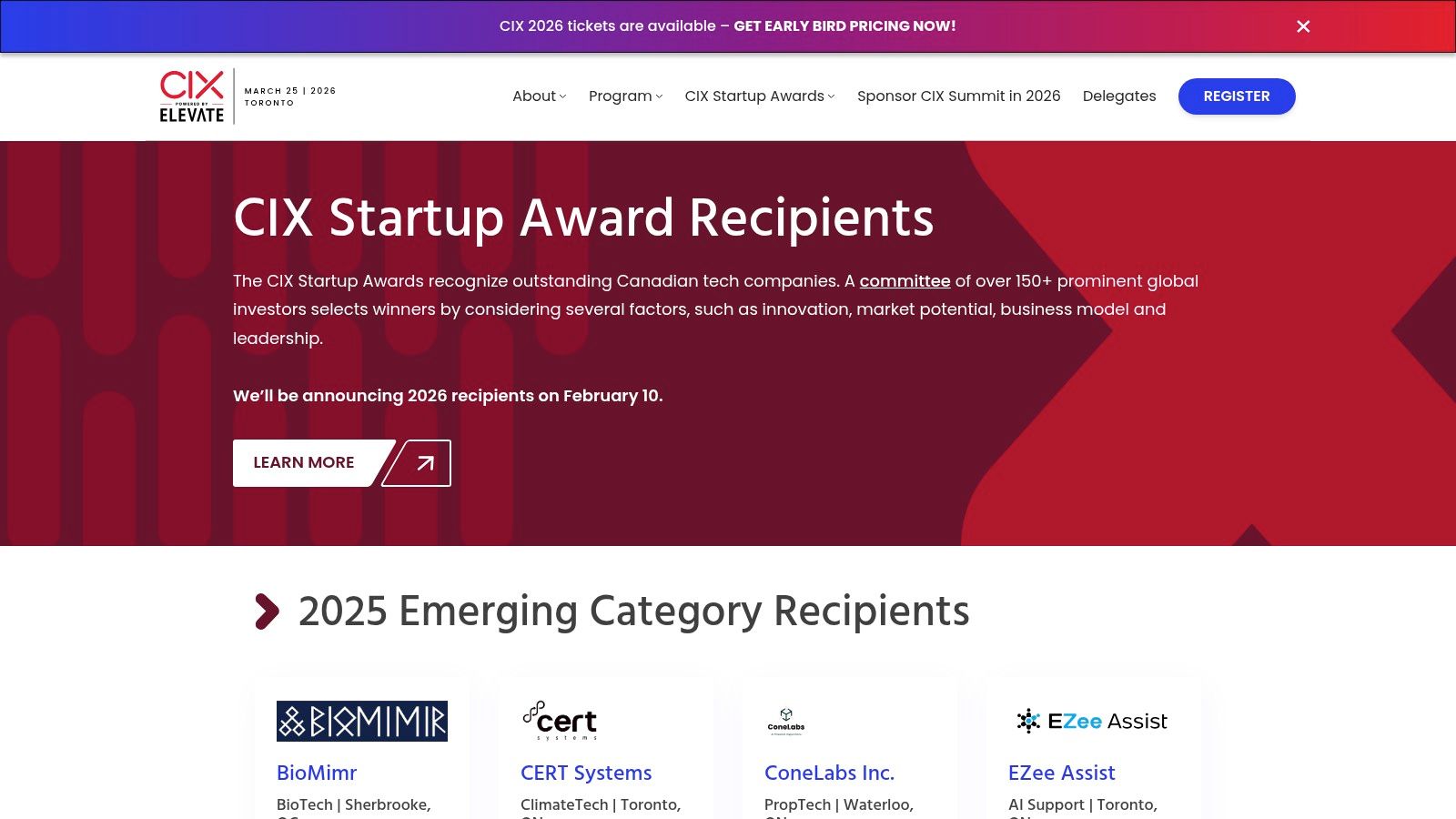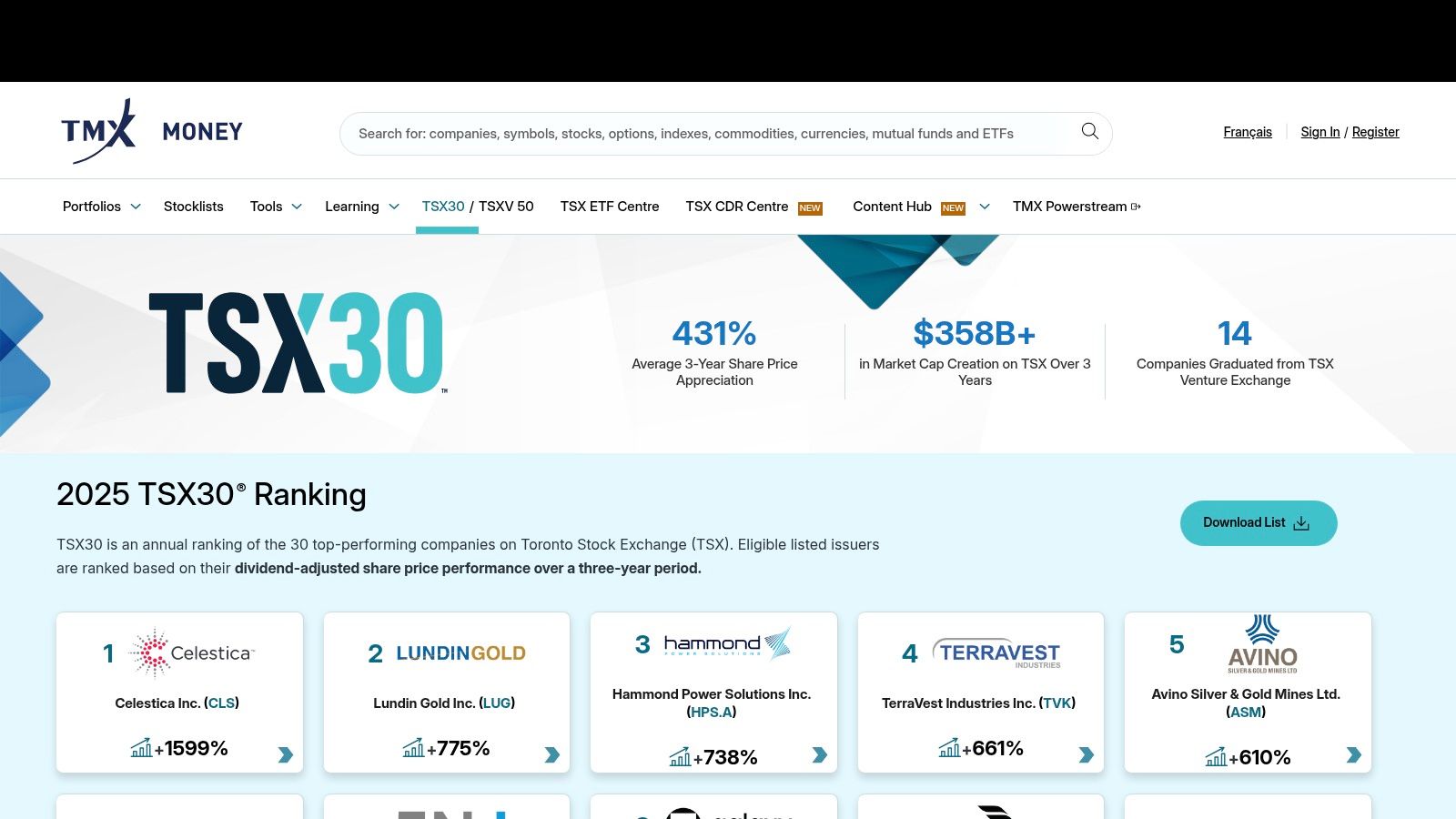It often starts with a single annoying email. But the desire to block Gmail messages usually spirals into something much bigger: a genuine need to protect your email privacy and security. Sure, you can block individual senders, but the real push comes from a deeper unease about data mining on hosted email platforms, the constant threat of phishing, and that nagging feeling of having lost control over your own inbox.
Why Blocking Gmail Is a Real Concern for Your Privacy

Let’s be honest, searching "how do I block Gmail" isn't really about one person. It’s a reaction to how so many modern hosted email platforms treat our personal information. When an email service is free, there's a good chance your data is the actual product, which puts the provider's business model squarely at odds with your right to email privacy.
This unease is made worse by the sheer volume of email security threats we all face. In Canada alone, an estimated 7 billion spam emails are sent out from within the country every single day. That relentless flood is more than just an annoyance; it's a serious security risk that pushes people to look for better solutions. Even if a spam filter is 99.99% effective, the tiny fraction that gets through can still do incredible damage.
Data Mining and Your Digital Footprint
Think about it: every email you send or receive on a large hosted email platform can be scanned, categorized, and analyzed. This data helps build a frighteningly detailed profile about you—your shopping habits, travel plans, personal contacts, and professional life. This information fuels targeted advertising, creating a digital shadow that follows you everywhere online. For a closer look at data practices and user rights, you can review their comprehensive privacy policy.
So, when someone wants to block emails from a huge platform like Gmail, it's often a deliberate pushback against this kind of surveillance. It’s about drawing a line in the sand for better email privacy.
The Rise of Sophisticated Phishing Attacks
With its massive user base, Gmail is a goldmine for cybercriminals. Phishing scams sent from compromised or freshly made Gmail accounts are not only common but also increasingly deceptive. These aren't the poorly-spelled spam messages of the past; they're sophisticated, convincing emails designed to trick you into giving up your most sensitive information.
By looking for ways to block or filter these messages, you’re not just cleaning up your inbox. You're actively shrinking your 'attack surface' and defending yourself against fraud. It’s as much a security move as it is a privacy one.
Ultimately, the goal is to reclaim control. It's about building a digital space where you make the rules, free from invasive tracking and constant email security worries. To dig deeper into this, check out our guide on the real privacy of email.
Practical Ways to Block Senders in Your Email Client

When an unwanted email hits your inbox, the gut reaction is to stop it from ever happening again. The most straightforward way to do this is by blocking the sender’s specific address. It’s a quick, direct command that tells your email client you're done hearing from that person.
It’s satisfying to hit that block button, but it's good to know what’s happening behind the scenes. Blocking a sender doesn't stop their emails from being sent; it just sets up a rule to automatically divert any future messages from that exact address straight to your spam or junk folder. They'll never clutter your main inbox again.
This sender-by-sender approach is your first line of defence, available in just about every email app out there. It’s perfect for silencing a persistent nuisance or a known spammer, offering a small boost to your email security.
Blocking a Gmail Address in the Gmail Web Client
If you're using Gmail, blocking someone is incredibly simple. They've designed it to be a couple of clicks so you can get on with your day without a deep dive into settings.
Just open the email from the person you want to block. In the top-right corner of the message, next to the reply arrow, you'll see three vertical dots. Click on those dots to open the "More" menu.
A dropdown list will appear, and from there, you just need to select "Block [Sender Name]". Gmail will pop up a confirmation, and once you agree, all future mail from that address is rerouted to your Spam folder. It’s a clean, two-click fix.
Managing Blocked Senders in Other Popular Apps
The steps are pretty similar on other big platforms like Outlook and Apple Mail, even if the buttons and menus look a bit different. They all prioritize making this as painless as possible.
- In Outlook: With the message open, look for the three dots in the message pane to pull up the menu. From there, choose Block > Block [Sender Name].
- In Apple Mail: Simply click on the sender's name in the email header. A small menu will drop down, where you can select "Block this Contact".
To make it even easier, here's a quick-reference guide showing where to find the block feature in today's most common email applications.
Blocking Methods Across Different Email Platforms
| Email Client | Where to Find the Block Option | Effectiveness Against Single Senders |
|---|---|---|
| Gmail (Web) | Inside the message > "More" menu (three dots) > "Block [Sender Name]" | Very Effective |
| Outlook (Web/Desktop) | Inside the message > "…" menu > "Block" option | Very Effective |
| Apple Mail (macOS) | Email header > Click sender's name > "Block this Contact" | Very Effective |
| iOS/iPadOS Mail | Email header > Tap sender's name > "Block this Contact" | Very Effective |
| Android (Gmail App) | Inside the message > "More" menu (three dots) > "Block [Sender Name]" | Very Effective |
As you can see, the core function is pretty much universal. No matter the platform, you have a direct tool at your disposal.
Think of blocking as your own personal spam filter. You're essentially training your email client, one sender at a time, on what you consider junk. It works wonders for one-off annoyances but struggles against spammers who cycle through different addresses.
This method is ideal for dealing with legitimate senders you no longer want to hear from—like that company whose mailing list you can't seem to escape. But against sophisticated spammers who can generate new addresses on the fly, it's more of a temporary fix for a much larger email security problem.
To get a better handle on your inbox, you can explore more advanced techniques in our guide on how to block unwanted emails and reclaim your inbox. When blocking individuals isn't cutting it, it's time to look at creating broader filtering rules.
Blocking Every Email from the Gmail Domain
Blocking a single sender is one thing, but what if you need to go bigger? Sometimes, the goal isn't just to silence a person, but to cut ties with an entire hosted email platform. Setting up a filter to block every single email that comes from a @gmail.com address is a drastic email security measure, but it's a powerful way to reclaim your inbox on your own terms.
This isn't about avoiding one annoying sender; it’s about drawing a hard line. Businesses with airtight security protocols sometimes do this, as do individuals who have decided to completely disconnect from an email ecosystem over privacy concerns. It's an aggressive strategy, but for some situations, it's absolutely necessary.
How Server-Side Filters Work
The real magic behind blocking an entire domain happens with a server-side filter. This is different from the simple "block" button in your email app, which usually just sends messages to your junk folder. A server-side rule gets to work the moment an email hits your mail server—long before it ever has a chance to land in your inbox.
This gives you a ton of control. You can tell the server exactly what to do with any email that matches the criteria you set. For instance, you could have it:
- Instantly and permanently delete the message.
- File it away in a specific "Quarantine" folder for you to look at later.
- Forward it to another address, maybe for record-keeping.
By building a rule that looks for the sender's domain, you can effectively stop an entire hosted email platform at the front door.
The Big Risks of a Domain-Wide Block
Before you pull the trigger on a filter this sweeping, you really need to think through the fallout. Gmail is a behemoth in the world of email. Here in Canada, it accounts for a staggering 38.6% of all email traffic, making it the default for countless people and businesses. Its massive market share means that a total block will almost certainly have unintended consequences. You can dig into more of these stats and the astonishing volume of Canadian spam traffic to see just how dominant it is.
Just think about the legitimate emails you could end up missing:
- A job offer from a recruiter using their personal Gmail.
- An urgent message from a family member.
- Password reset links from services you signed up for years ago.
- Invoices and receipts from small businesses or freelancers who run on Gmail.
Blocking an entire domain is like telling the post office you won't accept mail from an entire country. Sure, you'll stop the junk mail, but you'll also miss every personal letter, package, and important document they send.
The Basic Logic of a Domain Filter
While the specific buttons you'll click will differ depending on your hosted email platform, the core logic for setting up a domain-wide filter is always the same. You're basically creating an instruction that says, "If an email shows up and the 'From' address ends in '@gmail.com,' do this."
You'll need to find your provider's settings, usually under a section called "Filters," "Rules," or "Mail Flow." From there, you'll create a new rule that follows this general pattern:
- Condition: The rule should trigger if the sender's address (or 'From' header) contains the text
@gmail.com. - Action: You then decide what happens. Popular actions are "Delete the message," "Move to folder," or even just "Mark as read."
It's a serious tool for managing your email security, but it's one that requires a lot of thought. If you’ve weighed the pros and cons and are ready to make a clean break, a server-side filter is the most direct way to do it.
The Hidden Limits of Blocking and Smarter Security Alternatives
Blocking a single sender can feel satisfying, a small win in the daily fight to keep your inbox clean. But it’s often just a temporary fix for a systemic email security issue. To truly take back control of your inbox, you need to look past these reactive tactics and embrace a more proactive approach to your email privacy and security.
The core problem with blocking is how easily spammers and bad actors can get around it. They aren't just using one email address; they're burning through dozens, hundreds, or even thousands. Blocking a single address is like swatting one mosquito while standing next to the swamp it came from. This tactic is simply insufficient for robust email security.
On top of that, most hosted email platforms have practical limits on how many blocked addresses or filters you can have. Gmail, for example, currently caps you at 1,000 filters. That might sound like a huge number, but it fills up surprisingly fast if you’re trying to block every single piece of junk mail. It’s simply not a sustainable email security strategy.
Moving From Reaction to Prevention
So, instead of getting stuck in a never-ending game of whack-a-mole, a much better strategy is to stop unwanted emails from ever getting to you in the first place. This all comes down to building better privacy habits and using smarter email security tools that shield your real identity.
True email security isn't about building a bigger wall; it's about making your front door harder to find. When spammers can't get your real address, the need for constant blocking disappears almost entirely.
Think about the typical filtering process: an email arrives, and you have to decide whether to block it or let it through.

This highlights just how reactive manual blocking is. You're always making the decision after the junk has already landed in your space.
Smarter Email Security Tactics
You can drastically cut down on unwanted email by adopting a few key habits. These simple shifts can make a massive difference to your inbox health and your overall email privacy.
Use Disposable Email Aliases: This is a game-changer for email security. Instead of handing out your primary email address, create a unique alias for new services. If that alias ever starts getting spammed, you can just delete it without any impact on your main account. It’s the ultimate way to control who can contact you.
Report Phishing and Spam: When you get a malicious email, don't just delete it. Use your email client’s "Report Phishing" or "Report Spam" function. Doing this helps train the hosted platform's global filters, making it smarter at catching similar threats for everyone.
Unsubscribe Responsibly: For legitimate marketing emails you no longer want, always use the "Unsubscribe" link. This is a legal request to be removed from their mailing list, a far more permanent email privacy solution than blocking.
At the end of the day, blocking is just one tool in a much bigger toolbox. For a truly solid defence, you might look into comprehensive email security solutions that offer layered protection against a whole range of modern threats.
Moving to a Truly Private and Secure Hosted Email Platform

If you're fed up with constantly fighting off spam, dodging phishing scams, and worrying about your email privacy, it might be time to stop playing defence. Instead of endlessly blocking senders, the most powerful long-term strategy is to change the game entirely by switching to a secure, private hosted email platform.
This isn't just a small tweak; it's a fundamental shift in your approach to email security. You move from a reactive, manual approach to a proactive one where security and privacy are built-in from the start. When your hosted email provider prioritizes your privacy by design, the constant need to block threats simply fades away.
An Inbox That's Secure by Design
Imagine an inbox where top-tier email security isn't an add-on you have to configure, but the default setting. A hosted email platform like Typewire is built on this very principle, tackling the root causes that lead people to search for ways to block Gmail in the first place.
It’s all about having features that protect your email privacy automatically, so you don't have to constantly be on guard.
Default Tracker Blocking: Many marketing emails hide tracking pixels that report back when you open their message. A truly private hosted email platform blocks these by default, cutting that data connection without you having to do a thing.
Intelligent Anti-Spam Filters: This goes way beyond basic keyword blocking. Modern, smart filters analyze a sender’s reputation and countless other signals to catch sophisticated phishing attacks before they ever land in your inbox.
Zero-Access Encryption: This is a game-changer for email security. It means your emails are encrypted in a way that makes them unreadable to anyone else—including the hosted email provider. Your conversations remain completely private and are never scanned for advertising profiles.
When you choose a platform where these features are standard, you’re not just getting a tidier inbox. You're getting genuine peace of mind.
The Importance of Data Residency and Privacy Laws
Where your data is physically stored matters for email privacy. For Canadians, using a hosted email provider that stores its data within Canada provides a crucial layer of legal protection. When your emails are on Canadian soil, they are governed by the Personal Information Protection and Electronic Documents Act (PIPEDA).
This isn't just a technicality—it's a legal shield. Canadian data residency ensures your personal information is protected by strong privacy laws, keeping it away from the wider net of foreign surveillance programs and different legal standards.
Choosing a provider that owns and operates its own infrastructure in Canada, like Typewire does in Vancouver, adds another rock-solid layer of email security. It means there’s no reliance on third-party cloud giants, giving the provider complete control over the safety of your data.
Ultimately, migrating to a private hosted email platform is the most effective and permanent solution to the problem of unwanted email. It turns your inbox from a constant battleground into a secure sanctuary, where privacy is the standard. For more ideas, you might want to explore some of the top secure alternatives to Gmail for privacy.
A Few Common Questions About Blocking Emails
When you start digging into blocking emails, a few practical questions always pop up. It’s one thing to know how to block someone, but it’s another to understand what’s actually happening behind the scenes and what it means for your email privacy and security.
Let's clear up some of the common uncertainties.
Will the Sender Know I've Blocked Their Gmail Address?
Nope. When you block someone, they won't get a notification. On their end, everything will look completely normal.
Your email service will quietly grab any future messages from that blocked address and send them straight to your spam or junk folder. It’s a discreet process that enhances your email privacy without alerting the sender, which is especially useful when dealing with spammers as it doesn't confirm your address is active.
Can I Just Block the Entire Gmail.com Domain?
Technically, yes, you can. But standard email clients don't offer a simple "block domain" button; you’d have to set up a specific filter or a server-side rule on your hosted email platform to reject everything coming from any @gmail.com address.
Be warned: this is a very blunt email security tool. Blocking the entire gmail.com domain means you won’t get emails from any Gmail user. Think about friends, family, online order confirmations, or professional contacts who might use Gmail. It’s a powerful option, but it can easily cause you to miss important messages.
Is Blocking Emails Really Enough to Protect My Privacy?
Honestly, no. Blocking is a reactive measure—it's what you do after an unwanted sender already has your address. It does nothing to stop your email from being scooped up in the next data breach or scraped by a different spammer tomorrow. True email security is proactive.
Real, long-term email privacy protection is about building a defensive wall around your digital identity from the start.
That means using better tools on a secure hosted email platform:
- Use email aliases: These act as decoys, hiding your true email address when you sign up for newsletters, apps, or online services.
- Choose an encrypted email provider: Find a service that respects your privacy and doesn't scan your emails to sell you ads.
- Block tracking pixels by default: Many emails contain invisible images that tell the sender when and where you opened their message. A good email service blocks these automatically.
Ultimately, blocking is just a temporary fix. A truly private email setup gives you a secure foundation so you don't have to constantly play whack-a-mole with spammers.
For a truly private and secure email experience where security is the default, consider Typewire. Built on privately owned Canadian infrastructure and protected by PIPEDA, Typewire is a hosted email platform offering zero-access encryption, default tracker blocking, and powerful filtering to keep your inbox safe. Take control of your email privacy at https://typewire.com.



